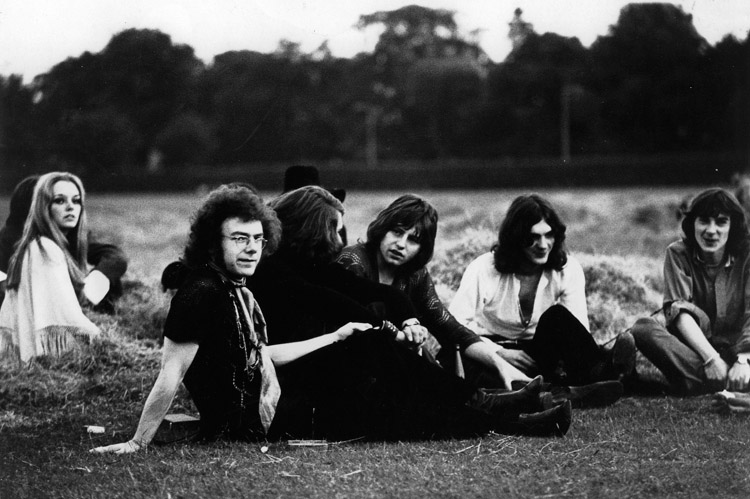
When bassist Peter Giles responded in June 1968 to an ad in "Melody Maker" in which former Fairport Convention singer Judy Dyble was looking for fellow musicians, he could not have imagined that this would be the birth of one of the most important English rock bands. Giles had recorded the unsuccessful album "The Cheerful Insanity Of Giles, Giles & Fripp" with his brother Michael on drums and guitarist Robert Fripp a few months earlier. At the same time Dyble wrote songs with her friend, the multi-instrumentalist Ian McDonald, and the poet Peter Sinfield, for whose recording they were looking for comrades-in-arms.
The Giles brothers and Fripp seemed to be the ideal line-up, not least because they brought along their still valid record contract with the label Decca. Peter and Michael Giles, on the other hand, quickly realized what an extraordinary musician McDonald was; but they didn't get a right connection to Dyble. After her relationship with McDonald also ended, the singer left the emerging project. Peter Giles also threw the towel in frustration after his desire for a folky orientation was rejected by Fripp and his own brother, who were more fond of hard sounds. Fripp remembered a talented singer named Greg Lake, for whose band The Shame he had worked as a roadie for a short time and who could also play bass.
The King Crimson era officially began in January '69. The band name was inspired by Sinfield's lyrics to the song "The Court Of The Crimson King" and a pseudonym for the devil. The extroverted womanizer Lake tried to give the band a more glamorous look, so he dragged Fripp to clothing stores: "The guy dressed like a high school student," Lake remembers, "so I went shopping with him. At least in the end he looked like a hippie!" Supposedly he also showed the shy guitarist how to tow girls.

In conjunction with Sinfield's groundbreaking lightshow, King Crimson gradually acquired a dark yet powerful image: "Her name," writes band biographer Sid Smith, "was bold and powerful at the same time, he summed up her determination, her self-obsession and her will Sinfield became, unusual for someone who wasn't on stage, a permanent member of the band.
Their management succeeded in booking their first gigs. The band performed as supporting act for Tyrannosaurus Rex and Steppenwolf before they hit the jackpot: They were allowed to heat up the Rolling Stones for their gigantic Hyde Park concert on July 5, 1969. And although King Crimson, according to his own statement, stayed below her limits, Fripp noted in his diary after the concert: "Standing ovations. Huge success, the future will show what importance it will have for us".
The immediate effect was at least overwhelming: Their pre-booked shows, for example at Marquee, were completely sold out. But the recordings for the first album didn't work out. Already the first sessions had been cancelled without a result. On July 7th, the musicians went back to the studio with producer Tony Clarke, who had previously worked successfully with the Moody Blues, but again this time it didn't work out. "It was frustrating. All our energy went into sounding like the Moody Blues," says Michael Giles. "Clarke had developed a formula and thought he could put it on any other band now." Decca then dismissed her from the contract, annoyed. But their managers David Enthoven and John Gaydon made a deal with the young label Island and even conceded that King Crimson could produce their debut themselves. History took its course.

